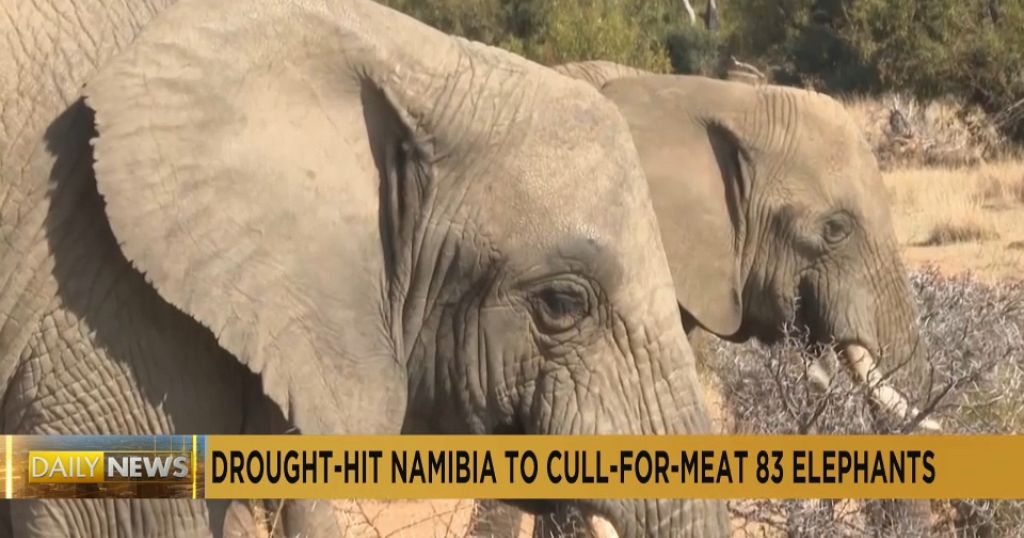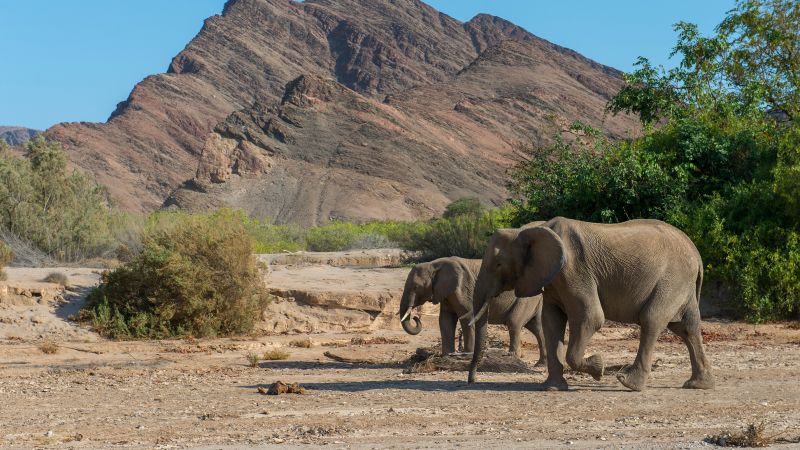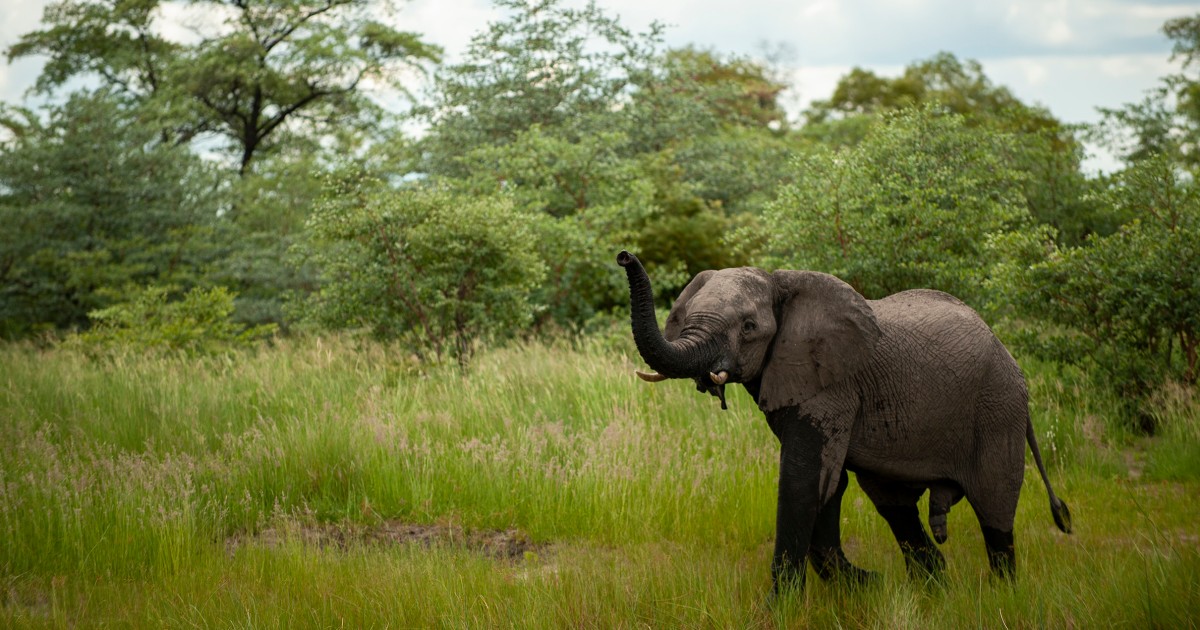Namibia’s MEFT announced plans to cull 83 elephants including 21 in the north-western region, where desert-adapted elephants roam. This small population represents one of only two such groups in Africa with the other located in Mali. The ministry say that the culling is necessary to reduce grazing pressure and provide meat to local communities affected by the drought.

Also Read: Japan: Emergency Warnings Issued as Typhoon Shanshan Threatens Kyushu
People of the culling plan including wildlife organizations like Elephant-Human Relations Aid (EHRA) say that the MEFT has provided no scientific basis for the killings.
Desert elephants are not competitors with livestock for grazing resources. The decision to target these elephants questions about the true motivations behind the cull with some suggesting it may be more about obtaining a large quantity of meat than managing wildlife populations.
The population of desert-adapted elephants in Namibia has been declining. According to EHRA, the number of resident elephants in the Huab and Ugab ephemeral rivers located in the southern Kunene and northern Erongo regions, is only 62 individuals.
The planned cull threatens to reduce this already fragile population. EHRA’s research indicates that desert elephants have a lower reproductive rate than other savannah elephants.
Namibia is struggling with its worst drought in 100 years, which has led to a national state of emergency.
Approximately 1.4 million people, nearly half of Namibia’s population are expected to face acute food insecurity in the coming months.
The drought has led to a huge reduction in cereal production (53%) and a steep decline in dam water levels (nearly 70%) impacting food availability.
Namibia’s Ministry of Environment, Forestry, and Tourism Announced Plans to Cull 723 Wild Animals. The Targeted Species Include:
- 83 elephants
- 30 hippos
- 60 buffalo
- 50 impala
- 100 blue wildebeest
- 300 zebras
- 100 elands
Also Read: Iceland Ice Wall Collapse: One Tourist Dead, Two Trapped
The culling operation will be carried out by professional hunters and safari outfitters. As of the latest reports, 157 animals have already been culled yielding more than 56,800 kilograms of meat. This meat has been distributed to communities affected by the drought.
Namibia is home to one of the largest elephant populations globally with over 200,000 elephants residing in a conservation area that spans across five southern African countries including Zimbabwe, Zambia, Botswana, Angola and Namibia.
The region has already seen the death of hundreds of elephants in Botswana and Zimbabwe due to drought conditions in recent years.
The Namibian government has argued that the culling is a necessary measure in line with sustainable wildlife management practices.
The Ministry of Environment, Forestry and Tourism addressed that the animals are being culled from areas with sustainable game numbers to ensure that the overall ecosystem balance is maintained.
Elephants have been known to destroy crops and infrastructure in their search for sustenance leading to dangerous encounters with humans.
The Namibian government’s decision to cull elephants from identified conflict areas is part of a strategy to reduce these conflicts and prevent loss of human life and livelihoods.
The National Conference on Human-Wildlife Conflict Management held in 2023 supported the reduction of elephant numbers as a practical solution to tackle these issues.
Other countries such as Australia have authorized the culling of wildlife populations including thousands of kangaroos, when their numbers exceed the available resources to support them.
These practices are often defended as necessary for environmental and population management.
Also Read: Bangladesh Floods: Nearly 3 Million People Stranded and 2 Dead





















